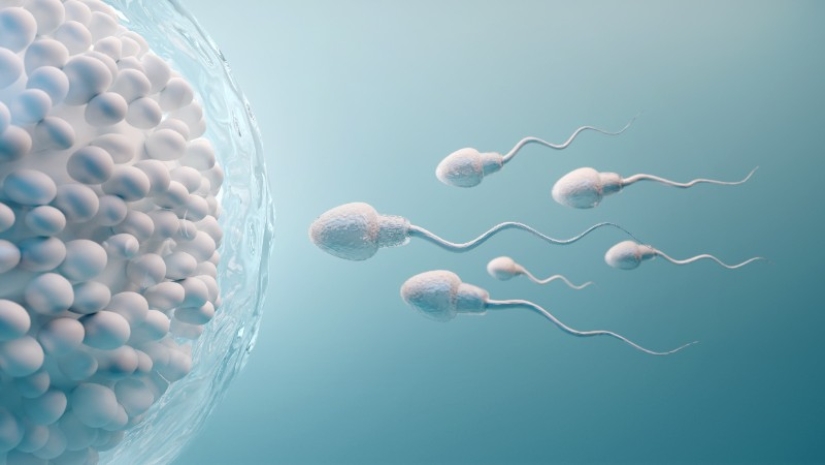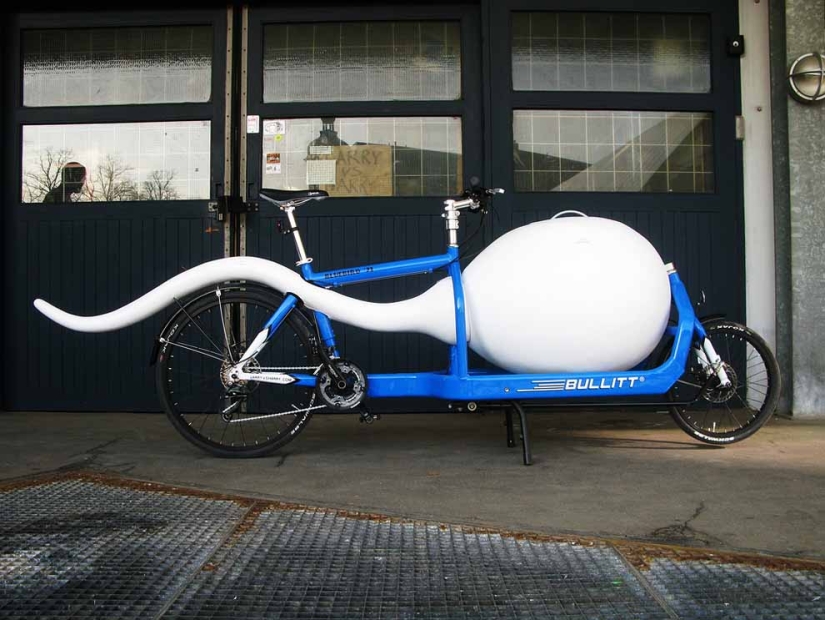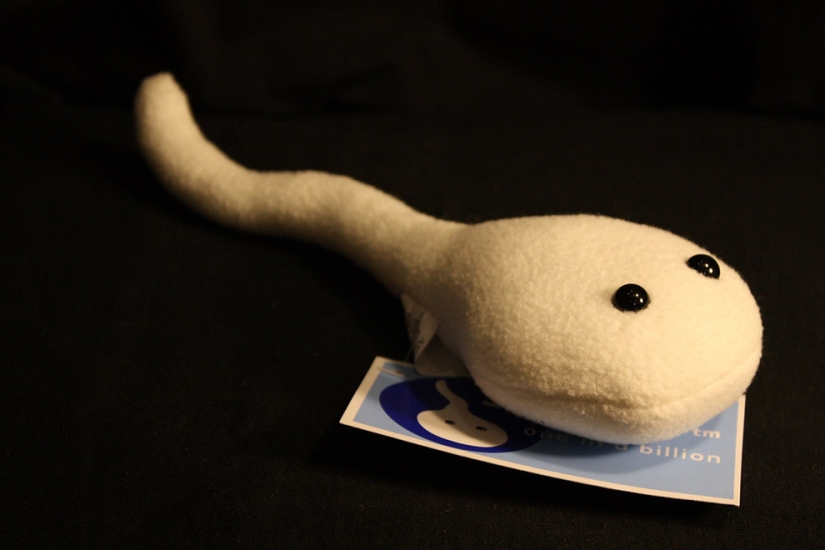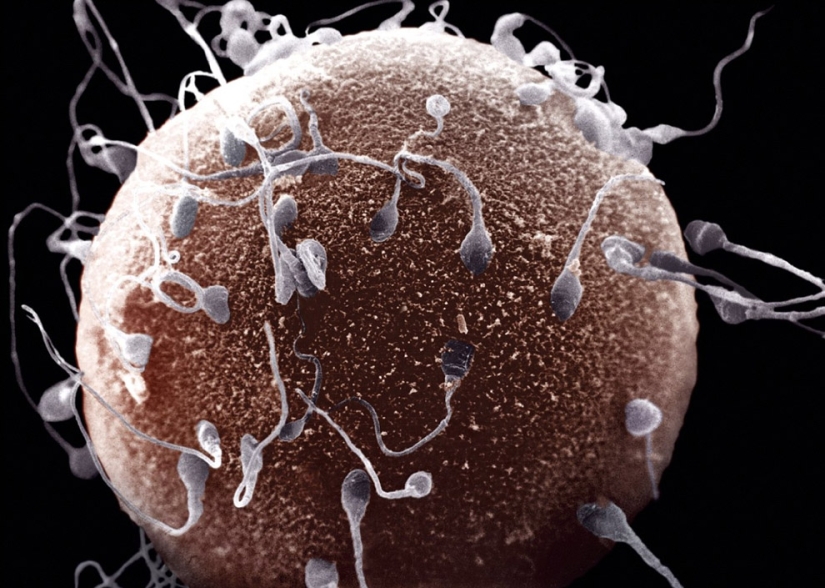10 facts about human sperm
Categories: World
By Pictolic https://pictolic.com/article/10-facts-about-human-sperm.htmlWe continue to broaden the horizons of our readers with small "infusions" of facts. This time we will talk about human (and not only) sperm…


Human spermatozoa move at a tremendous speed of up to 4 mm per minute, the slowest move at a speed of 1 mm per minute. At the same time, imagine that the size of the sperm is only 55 microns in length, in other words, it is 0.055 mm. The average length of the path in the fallopian tube is 175 mm, so it takes 44 minutes for spermatozoa to overcome this path, but this is in theory, in practice it takes 3 days.

Even a healthy couple practicing unprotected sex has only a 25% chance of conceiving a child. If you wear tight-fitting underpants instead of family ones, your chances are plummeting. In most mammals, the body temperature is 3-6 degrees higher than the temperature of the scrotum. An increase in the temperature of the scrotum to body temperature leads to the termination of spermatogenesis during cell division.

One of the reasons that the sperm pathway takes so long is because they move against the fluid flow. Only every 5th sperm moves in the right direction after ejaculation.

During ejaculation, a person's sperm moves at a speed of 70 km/h

After a maturation period of about 64 days, the sperm can be stored in a man's body for up to a month. In the ejaculate, they are able to survive, depending on environmental conditions (light, temperature, humidity) for up to 24 hours. In the vagina, spermatozoa die within a few hours. In the cervix, uterus and fallopian tubes, spermatozoa remain alive for up to 3 days. However, some of the particularly successful spermatozoa will be able to live for about 70 years.

An adult male releases a tablespoon or 2 to 4 ml of sperm at a time. For comparison, a wild boar secretes one glass of sperm or 250 ml.

One of the largest spermatozoa in the world in rats is 170 microns in length. A large number of mammals, including humans, have some of the smallest sperm cells, only 40 microns in length.
The largest spermatozoa in the tiny fruit fly drosophila bifurcation, if you straighten its spiral cells, their length will be equal to 2.5 cm.

Spermatozoa need 2 and a half months to grow, the question arises, where are the spermatozoa all this time.Storage and maturation of spermatozoa occurs in the appendage of the testicle, on average, 150-200 million spermatozoa are stored in each appendage of the testicle. Approximately 1 week takes the passage and storage of spermatozoa through the appendage of the testicle. In the absence of ejaculation, spermatozoa accumulate in the tail of the appendage of the testicle, where they can remain viable for several weeks. Non—ejaculated "old" spermatozoa undergo a process of destruction - phagocytosis.

Of the total volume of seminal fluid, only 5% of the volume is occupied by spermatozoa, the rest is a combination of nutrients and protective substances that are designed to support cells on the way to the egg.

How to improve the quality of your sperm — eat fresh fruits and vegetables, avoid heavy food and excess weight, spend more time outdoors, take vitamins, refrain from smoking and alcohol. In addition, more sperm will be produced, but also sperm cells will be more active.
Recent articles

It's high time to admit that this whole hipster idea has gone too far. The concept has become so popular that even restaurants have ...

There is a perception that people only use 10% of their brain potential. But the heroes of our review, apparently, found a way to ...

New Year's is a time to surprise and delight loved ones not only with gifts but also with a unique presentation of the holiday ...